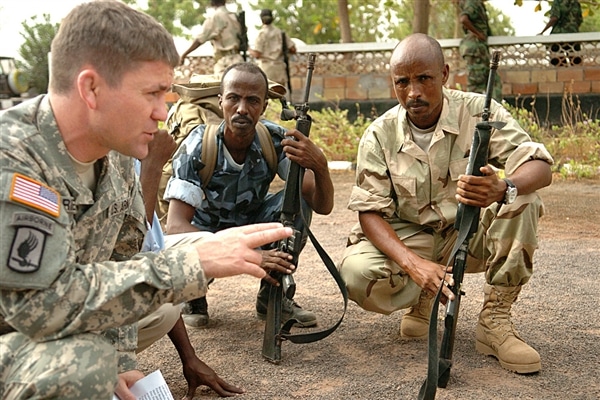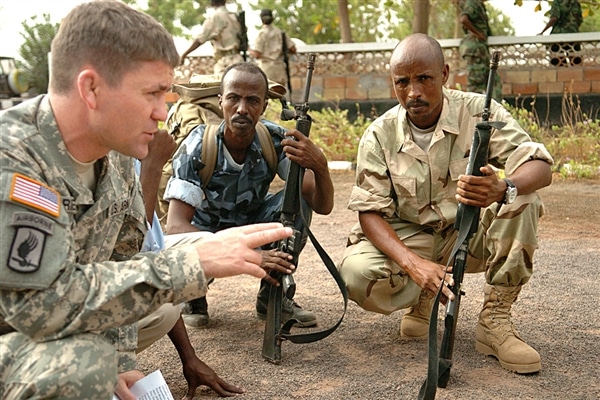
`Take up the white man’s burden’
Rudyard Kipling, poet laureate of British imperialism
The British Empire, which at the end of the 19th century ruled one quarter of the earth’s land surface, is long gone. But its robust successor and heir, the United States, has set about enlarging it.
As I sought to explain in my last book “American Raj – How the US Rules the Muslim World,” the US imperium exerts its power by controlling tame, compliant regimes around the world and their economies. They are called “allies” but, in fact, should be more accurately termed satrapies or vassal states. Many states are happy to be prosperous US vassals, others less so.
The US power system has successfully dominated much of the world, except of course for great powers China, Russia, and India. Germany and much of Western Europe remains in thrall to post WWII US power. The same applies to Canada, Latin America, Australia, and parts of SE Asia.
There is one part of the globe that has remained free from heavy US influence since 1945, sub-Saharan Africa. But this fact is clearly changing as the US military expands its operations the width and breadth of the Dark Continent.
We are seeing a rerun of the fine old 1930’s film, “Beau Geste” which was taken from a cracking good 1924 Victorian novel by C. Percival Wren. Set in French North Africa, Wren’s dashing French Legionnaires end up defending a remote fort against masses of hostile Arab and Berber tribesman.
The novel and film negatively shaped western attitudes to the Arab world and its peoples but glorified the French Foreign Legion. Wren claimed to have been a member of the Legion which was the primary enforcement arm of France’s African colonial empire.
The famed Legion, which fought from Mexico to Indochina, has now shrunken to a pitiful 8,000 men. France’s thread-bare finances proved a deadlier enemy than Saharan horsemen.
Even so, the Legion is still used by Paris for sudden shock interventions across West Africa to support client French regimes and punish those who challenge the status quo. I’ve lifted many a glass with Legionnaires. They are an amazingly tough bunch: you never know whether they are going to kill you or buy you drinks.
US troops have now stepped into the boots of “La Legion.” Almost unnoticed, US Special Forces – our version of the Legion – have been slipping into Africa, the newest and most exciting market for the Pentagon.
Creation of the new US Africa Command in 2007, with headquarters in Germany, was discreet but it signaled active US military and geopolitical interest in resource-rich Africa, a key target of Chinese interest. No one in Washington seems to know how many US troops operate in Africa, but it’s at least 12,000 not counting mercenary contractors and CIA units. There was consternation in Congress when these facts emerged last week.
The key US base in Africa is at Djibouti, a poxy, fly-blown French colony on the Red Sea that is also shared by the Legion and, curiously, a Chinese naval station. US forces in Djibouti operate into Yemen, South Sudan, Somalia, and Central Africa. US forces in West Africa operate in Mali, Chad, Burkina Faso, Nigeria, Liberia, Uganda, and anywhere that pro-US regimes are under pressure. Mali and Chad, where nomadic tribes battle the central government, are key operating regions. Both are under nasty dictatorial regimes backed by Washington.
As in the British Empire, the “natives” are kept under control by small numbers of skilled Western troops. There’s no need for big battalions of regulars. The key is western air power and intelligence. Particularly so in often barren sub-Saharan West Africa where French and US warplanes patrol the skies. “We have the Maxim gun (machine gun) and they have not” wrote a Victorian poet. Nothing much has changed.
France’s previous president, Francois Hollande, charged into a local tribal squabble in Mali, a key uranium supplier, between black town dwellers and nomadic Tuareg and assorted Islamists. Unable to afford the spreading war, France asked for US help and got it. The bitterly anti-Muslim Trump administration could not miss a chance to attack Muslims in West Africa under the banner of “anti-terrorism.”
A “terrorist” in this case is anyone who challenges the western-dominated political order, from Malian nomads to Central African Republic rebels. In the brutal dictatorial regimes of former French West Africa the only effective opposition comes from groups calling themselves Islamic. This pulls the chain of the Trump administration and its Christian fundamentalist allies at home who seek to uproot fast-spreading Islam from Africa.
So off the US military charges into Africa, with little understanding of the region and even less strategic planning. It’s Vietnam-style “mission creep” all over again. Washington is still trying to figure out what happened to Herzegovina in the Balkans while it plunges into darkest West Africa. That’s why Trump and French president Emmanuel Macron are so chummy these days.
Reprinted with permission from EricMargolis.com.

